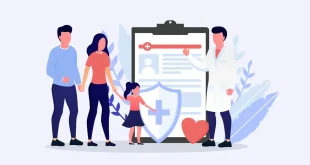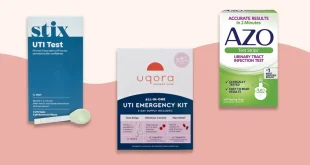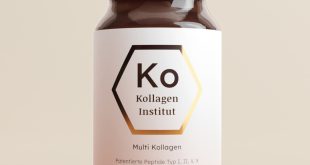Type “annual cost of prescription drugs in the U.S.” into a search engine, and you’ll get some high numbers. Americans spend far more than people in other countries. The markups for drugs are high. And no matter the physical or mental ailment, there’s a drug for it.
High blood pressure? Take an ACE inhibitor. High cholesterol? Take a statin. Acid reflux? A proton-pump inhibitor should do the trick.
While prescription medications are often necessary to treat illness and disease, there may be viable nontraditional alternatives. Since all drugs have some potential side effects, many people would probably prefer taking a different route. They just may need a map to get there.
Ultimately, you may find out that prescription and over-the-counter medications are the best way to address your health issue. However, it doesn’t hurt to explore other options. You might just find a better path to good health. Give these five alternatives a shot.
1. Talk It Out
Talk therapy, also known as psychotherapy, can help people suffering from a variety of mental illnesses and emotional disorders. Psychiatrists, psychologists, counselors, psychiatric nurses, licensed social workers, and therapists are trained in psychotherapy.
Psychotherapy takes many forms, including cognitive behavioral therapy (CBT), psychoanalysis, interpersonal therapy (IPT), play therapy, and even equine therapy. CBT is designed to help people change unhealthy thinking and behavior patterns. It’s used for a variety of mental health challenges. For example, it can be a Lamictal alternative for bipolar disorder.
IPT’s goal is to resolve issues and conflicts and find healthy ways to express emotions. Animal-assisted therapies use four-legged friends to provide comfort and reduce trauma. Play therapy is used to help kids uncover the root causes of emotional problems and then address them.
Although talk therapy may be combined with medications in some cases, it doesn’t rely on chemicals to change thought patterns. Instead, these therapies uncover the source of unhealthy patterns and rewire the brain with healthy ones. They aim to heal using a new perspective, not a new prescription.
2. Change Your Diet
The relationship between what you consume and your health has been generally understood for centuries. You really are what you eat, so what you eat and drink may change your health for the better.
High cholesterol, for example, is caused by inflammation which alters lipid metabolism. Statins, commonly prescribed to lower cholesterol, block the liver’s production of an enzyme necessary for cholesterol production. That’s why liver damage is among the potential side effects of long-term use of statins.
High LDL (“bad” cholesterol) levels may increase your risk of heart disease. However, medications aren’t the only way to lower the increase of LDL. Oats, red wine, garlic, and olive oil can reduce the inflammation that alters lipid metabolism.
Furthermore, the cocoa in dark chocolate lowers oxidized LDL. Red wine in moderation raises HDL (“good” cholesterol), which could improve your HDL-LDL ratio. A glass of red wine and a little dark chocolate taste infinitely better than swallowing a statin.
3. Bring Homeopathy Home
Homeopathy, launched in Germany in the late 1700s, is based on the premise that the body can heal itself. Treatments use tiny amounts of what makes you ill to ramp up the body’s natural defenses. Homeopathy is used widely in Europe but minimally in the United States.
Homeopathic doctors diagnose health conditions and mix minute amounts of substances with water or alcohol for you to ingest. If you suffer from allergies, for example, homeopaths may use red onion. Substances that cause vomiting are diluted and used to prevent vomiting.
Other conditions homeopathy commonly treats include migraines, depression, chronic fatigue, irritable bowel syndrome, and PMS. Some concoctions use otherwise dangerous ingredients, including belladonna and arsenic in herbal or synthetic form. For example, rheumatism and other inflammatory diseases may benefit from tiny amounts of arsenic, commonly found in mushrooms and rice.
The FDA exercises oversight of homeopathic remedies, but it doesn’t verify safety or efficacy, so use them with caution. While there is little scientific evidence that these remedies work, there are a few centuries’ worth of anecdotal testimony. Homeopathy may rely upon the placebo effect for some, but if it works for you, why not embrace it?
4. Add Supplements to Your Routine
Some physical and mental health conditions can be treated using herbal and nutritional supplements. That’s because your body may lack nutrients that could address symptoms of diseases including Alzheimer’s, acid reflux, depression, and anxiety. Supplements give your body what it’s missing.
If you’re suffering from depression, for example, your doctor may automatically prescribe Prozac, Lamictal, or Elavil. But why not discuss trying omega-3 fatty acid, Vitamin D, or zinc supplements before you hit the pharmacy? If you’re not in the midst of a crisis, these supplements might improve your symptoms.
Acid reflux is another problem that may be solved with supplements. Besides being extremely uncomfortable, acid reflux leads to malabsorption of vital minerals. Herbal slippery-elm lozenges contain antioxidants that reduce inflammation and boost mucous production, which coats the gastrointestinal tract.
Supplements can be a kinder, gentler way to give your body what it needs to fight what ails you. However, only use them with your doctor’s approval, especially if you’re taking prescription medications. Reactions with supplements can render drugs ineffective or, worse, be deadly.
5. Link Your Treatments
Integrative medicine combines alternative treatments with conventional ones. Whereas medications may target a single symptom, integrative medicine addresses the person as a whole. It takes advantage of all therapies that could treat a physical or mental health issue.
Alternative treatments include acupuncture, dietary supplements, animal-assisted therapy, and aromatherapy. Yoga, meditation, and massage may also be used to reduce chronic pain and fatigue, depression, anxiety, and more.
Yoga and massage, for example, increase blood circulation, which cleanses toxins from the body. They also stretch organs, muscles, joints, and tendons gently to relieve pain and allow you to relax. Stress is a natural reaction to any disease or disorder, and these integrative modes of therapy reduce it.
Research indicates that yoga, massage, and meditation also boost serotonin and dopamine production. That boost can relieve symptoms for a range of health issues, including depression, Parkinson’s, obsessive-compulsive disorder, and post-traumatic stress. That’s a prescription that’s good for the body and the soul.
Prescription and over-the-counter medications can work miracles, but they come at a price. Both the cost of medications and the potential side effects might make them less desirable treatment choices. A holistic approach may lead you to better options.
If you’re experiencing a health crisis, traditional pharmaceutical intervention is important. And no one should stop taking medications or start using alternatives without talking to their doctor first. However, alternative medicine is a growing field and shows lots of promise. A side of yoga with your antidepressant could be just what the doctor ordered.
 The Care Up
The Care Up




